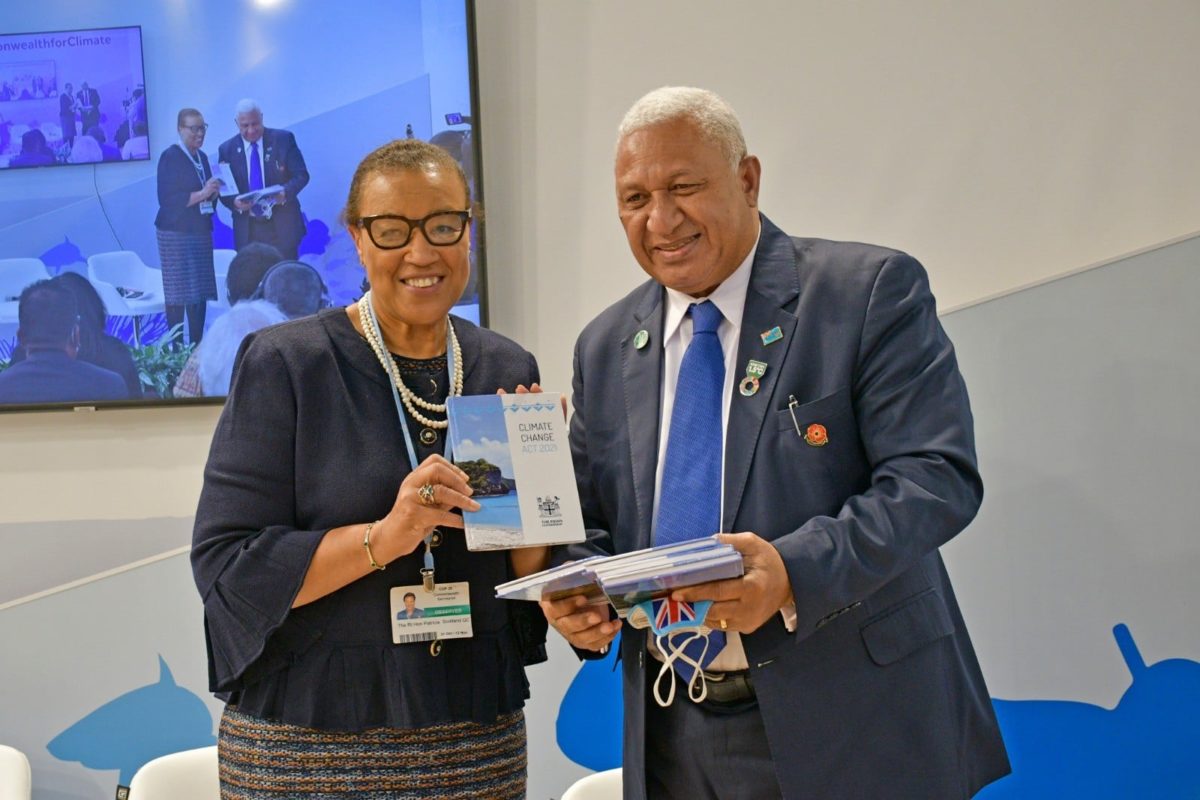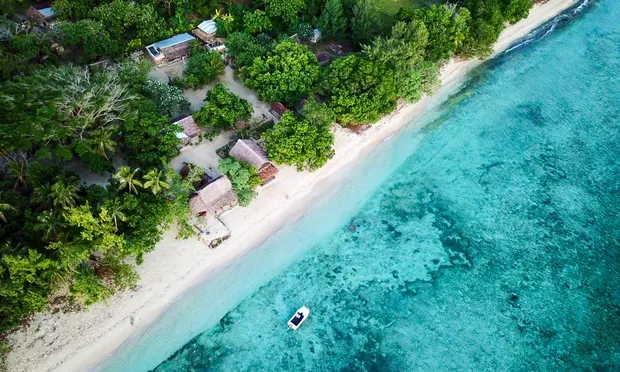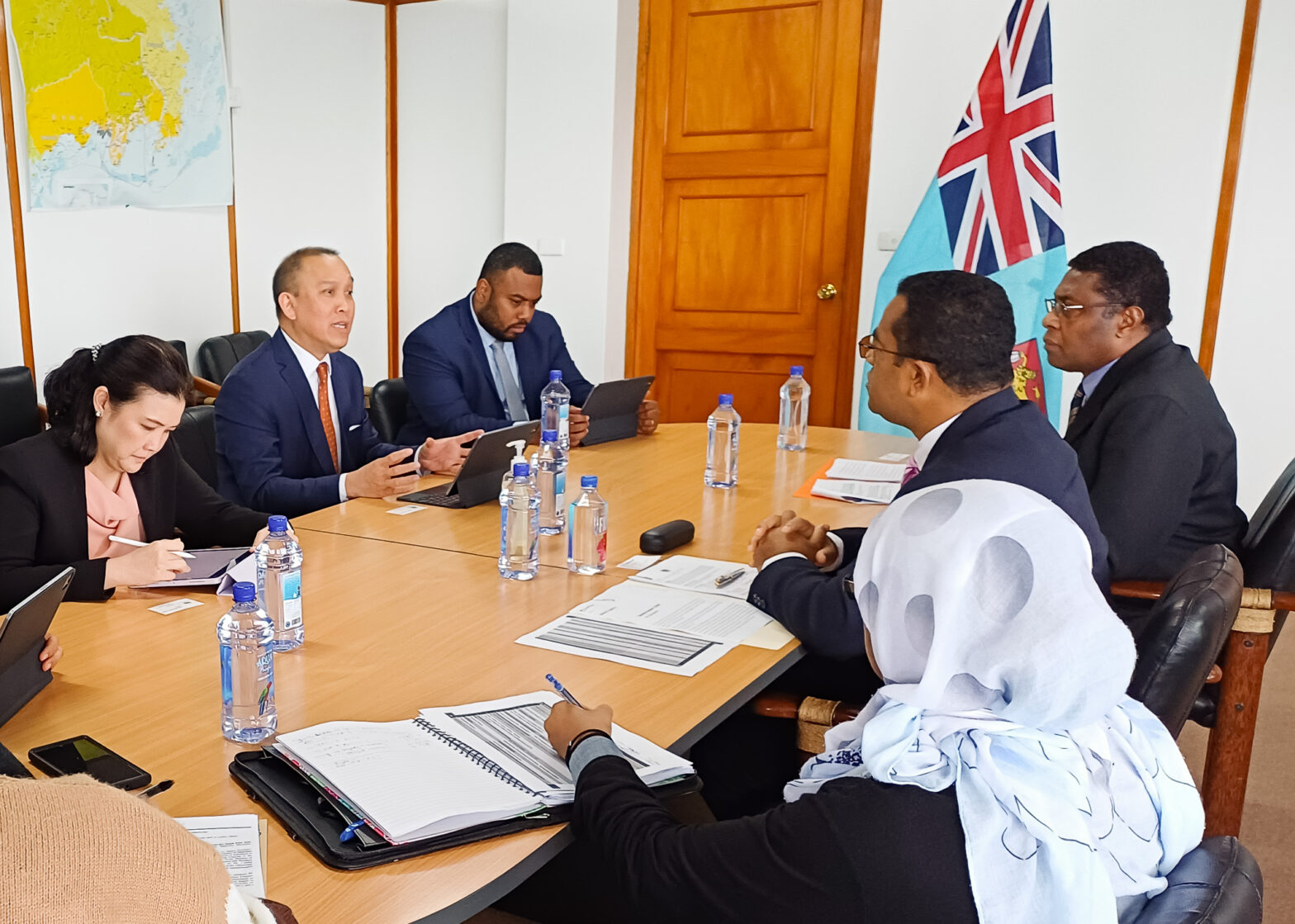A truly resilient food system will have sustainability at its core, says Fijian Prime Minister Bainimarama.
Bainimarama made the remarks at the Commonwealth Call for Action on Living Lands: Accelerating Action against Climate Change, Desertification and Biodiversity Loss across the 3 Rio Conventions- featured commitments of all countries to preserve the global environment.
“It is the sustainability in what we produce, how we produce, and how much we produce. It links us all and makes us all responsible for ourselves and each other and we must challenge our agricultural innovators to breed hardy crops that can weather whatever the climate throws at them,” he said.
“Fiji is doing this through a comprehensive and integrated legal framework. We integrated food security into Fiji’s three-year-old National Adaptation Plan to ensure that Fijians can continue to put locally-grown, nutritious produce on the table, even when storms intensify, droughts prolong, and the seas rise.’
“Food security is also one of the adaptation targets in our NDC. Our National Action Plan on Combatting Desertification-launched in 2007-is at work today combating degradation.”
Actions around resilient food systems to sustain us and sustainable land-use practices to slow climate change and biodiversity loss were the centre of discussions at the margins of COP26.
Bainimarama said in Fiji, eight million seedlings have already been planted since 2019 as part of its commitment to plant 30 million trees.
“Through an Agriculture Rural Land Use policy, we have adopted sustainable land-management technologies with the goal of having no net land degradation by 2050. Our Land Conservation and Improvement Act marries sustainable socio-economic policy with responsible environmental management and our Ministry of Agriculture’s five-year plan is aligned with UN Conventions on food and nutrition security, despite the changing climate, through a bottom-up approach that enlists farmers in this national effort,” the Prime Minister further added.
“We have a new model and new way to strike a balance between human progress and environmental protection. We can be excellent environmental stewards while we improve the standards of living for our people.
“We can create livelihoods without sacrificing our biodiversity. Rather than leave our children a world of lifeless deserts, we can pass on ecosystems that are rich with life and capable of supporting coming generations.”
Commonwealth Secretary General Patricia Scotland said as the climate changes at an alarming rate, the associated impacts and risks are increasingly felt across a range of ecosystems essential for human well-being and survival.
“Our landforms the foundation for sustaining human life, supporting billions of people for their food, livelihoods, and traditions. It is both a source and a sink of greenhouse gases. Sustainable land management recognizes the key social, economic and environmental benefits of land use planning and management, and it plays an essential role in the fight against climate change as well as adapting to its impacts,” she said.
She also assured high-level audience of the Commonwealth’s continued support using its convening power, partnerships, innovation and advocacy to support and stand in solidarity with our most vulnerable and most at risk nations who are enduring the worst impacts of climate change, biodiversity loss and land degradation.
This story was produced by the Fijian Government and PACNEWS on 04 November 2021, reposted via PACNEWS.




